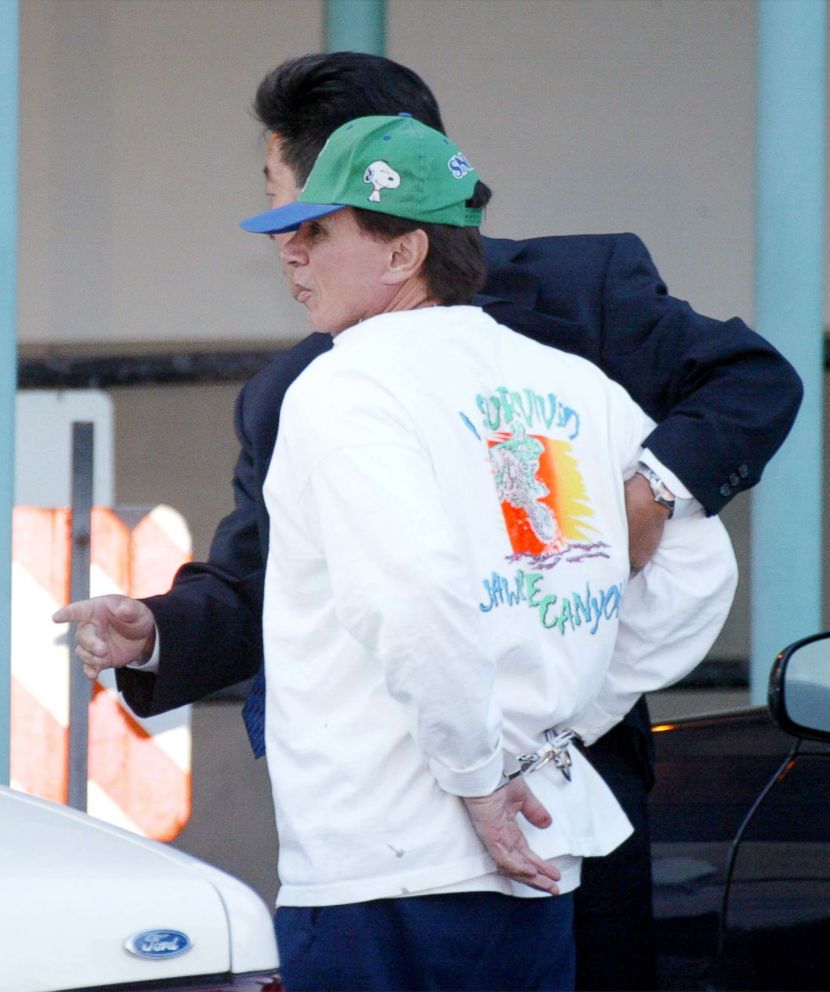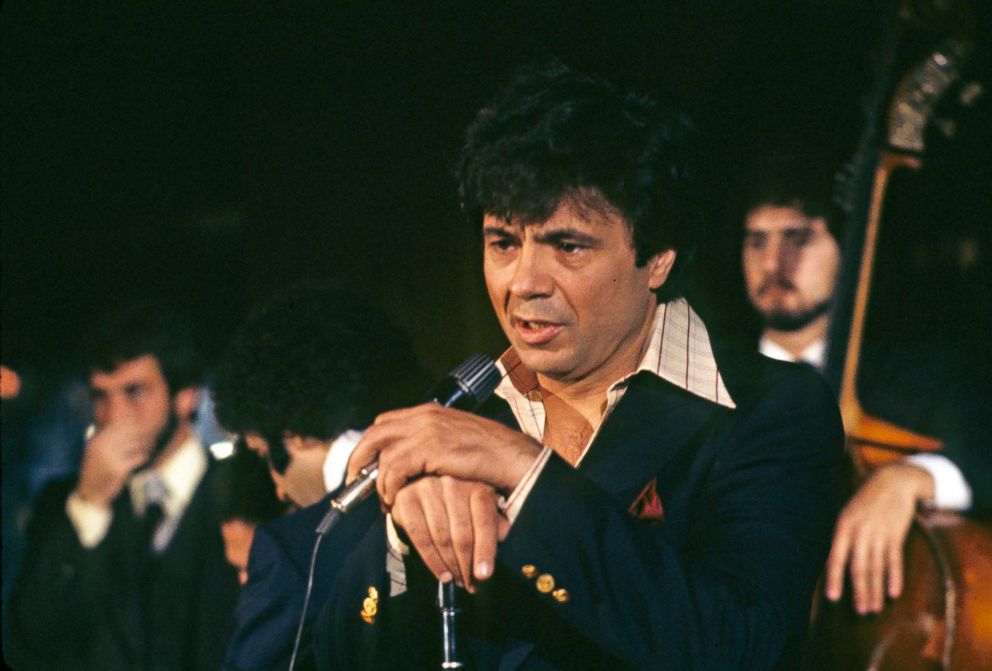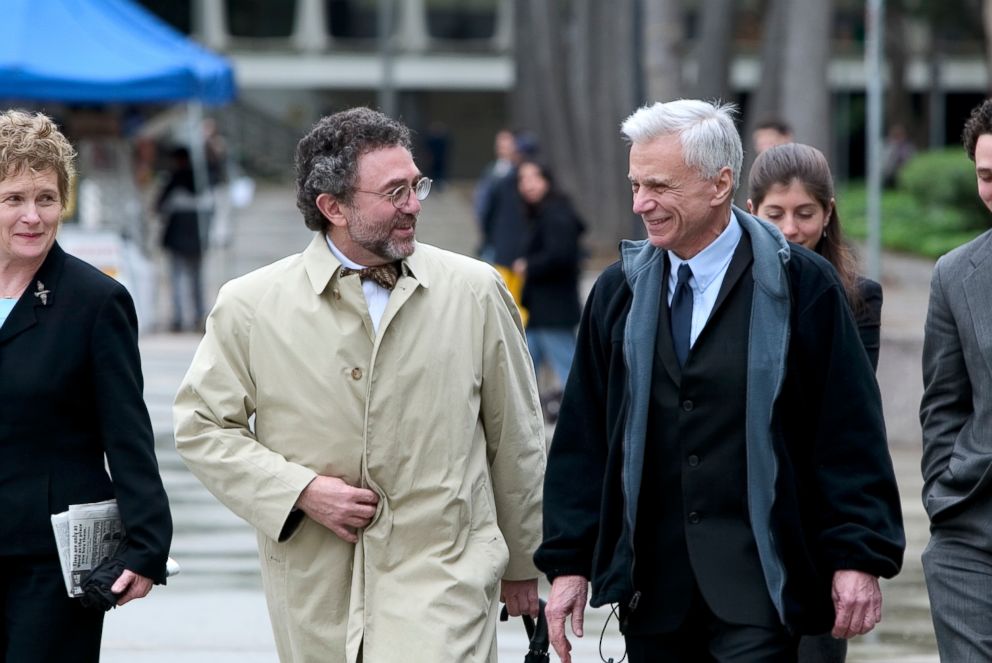How Robert Blake’s bold and unpredictable personality played into trials for his wife’s murder
If there’s one thing actor Robert Blake wants people to know, it’s that he’s not done fighting -- despite the curve balls life has thrown his way.
“I'm 85 years old, I'm beat up all to hell and gone but I'm still here,” Blake told ABC News in an exclusive interview.
Blake has been a household name for generations of Americans from his decades in TV and film. The same drama, frankness and imprudence that made fans fall in love with him on screen also affected his image when he was on trial in the mysterious 2001 murder of his second wife, Bonny Lee Bakley.

Now, more than 13 years after he was acquitted in Bakley’s murder but found civilly liable for her wrongful death, Blake remains a controversial figure.
Blake was acquitted in his criminal trial because the forensic evidence showed he didn’t fire the murder weapon and the two main witnesses against him were lacking in credibility.
Blake’s colorful persona has shone through since he started acting as a child, first in the film series “Our Gang.” He says he came from an abusive household where his father had beat him.
“I was his punching bag,” Blake told ABC News. “I wish I could talk nicely about him. It would be like me trying to talk nicely about the cops that put me in that cement box [in jail] for a year. To this day I hate ‘em. I’m still here, you bastards. I’m still here. I didn’t die in that box. You got it? I’m still here.”
His “big break” as an adult actor came when he played Perry Smith in the 1967 film “In Cold Blood.” He used his own abusive background to help him portray the real-life killer.
“Blake reached down into himself… to create this character who was vulnerable and also murderous, but who you as a viewer ended up having mixed feelings about,” said ABC News contributor and People magazine's former managing editor Larry Hackett.
Then there was the starring role in the ‘70s TV series “Baretta,” in which Blake became a household name as the title character, detective Tony Baretta.

Baretta was a rule breaker but also someone who defended the innocent and vulnerable.
“I designed Baretta as my ideal self,” Blake told ABC News. “It was a lot of things that I wanted to be. But people thought that was me, and they expected to find that when they met me… And it just ... it wasn't true.”
The show ended in 1978, but Blake stayed in the public eye by appearing on “The Tonight Show” – 150 times in 15 years.
He took long breaks from his acting career. At one point, stopped working for eight years and got involved with political activism with civil rights activist Cesar Chavez and the anti-nuclear movement.
“I made a lot of money,” Blake told ABC News. “I was already a millionaire. But I was lost. I was lost in life.”
Blake met Bonny Lee Bakley at a jazz club in 1999. Bakley ran a lonely hearts business and friends say she was intent on marrying a celebrity -- she was already involved with Christian Brando, son of famed actor Marlon Brando, when she met Blake.
After Bakley gave birth to Blake’s child in June 2000 -- a baby girl named Rosie -- the two got married in that November. It was his second marriage. She had been married multiple times.
It was May 4, 2001, when Blake told police that he and Bakley had gone to dinner at his favorite restaurant, Vitello's, in Studio City, California, and that afterwards, they walked to the car together.

But Blake said he then had to go back into the restaurant to retrieve a gun he had left at the table. When he came back out, Blake said he found Bakley sitting in their car with two gunshot wounds.
Sean Stanek, who lived near Vitello's at the time of the shooting, said he was “stunned” to find the famous actor suddenly banging on his door, asking for help. Stanek was the one who called 911.
“I open the [car] door, I sit in next to her [Bakley] and I pull her up. I tell her squeeze my hand but all she's doing is gurgling and there's just massive amount of blood everywhere,” Stanek told ABC News in a 2018 interview about the night he tried to help Bakley as she was dying. “It's probably about a minute or two minutes before he came back. When I saw Robert Blake had a gun, I thought to myself, ‘We're in deep s---.’”
“This was a murder. This is your quintessential Hollywood murder noir story. This is it,” he added. “Doesn't get bigger than that.”
Police considered several potential suspects, including Christian Brando and other men Bakley had been in contact with through her lonely hearts business, but they zeroed in on Blake and eleven months later arrested him.
Blake was charged with one count of murder with a special circumstance of lying in wait and two counts of solicitation of murder in connection to Bakley’s death. He pleaded not guilty to the charges and was held for months behind bars before he was finally granted bail as he awaited trial.
The murder weapon, later recovered in a dumpster, was not the gun Blake had on him that night. Authorities were unable to link Blake, or anyone else, to the murder weapon but prosecutors argued that Blake had launched a plot to have her killed, which Blake has long adamantly denied.
“I was worth $40 million,” Blake told ABC News in a recent interview. “I would hire somebody to shoot my wife in a car while I was out taking a pee or some bull---- thing like that? I've been in Hollywood all my life.”
Blake didn’t know it then but his decision to speak to ABC News’ Barbara Walters in a 2003 exclusive jailhouse interview would play a major role in his criminal case.
During the interview, Blake denied having any role in the killing and when Walters asked him if the “tough guy” he portrayed on screen was the real Robert Blake, he said “no.”
“The cops invented that person and shoved it down the press’ throat and the press loved it,” Blake told Walters at the time. “I’m a prisoner. I’m in a cement box in a jail. It’s, it’s you know, 24-hour lockdown has its ah, advantages but the disadvantages are there’s no human contact.”
The criminal trial began in December 2004. The prosecution argued that Blake tried to hire others to kill his wife and did it himself when he couldn't find anyone to carry out the murder. The star witnesses for the prosecution were two stuntmen who claimed that Blake had offered to pay them for his wife’s murder.
The defense said that there was no gunshot residue from the murder weapon found on Blake’s hands after the murder.
“Bonny was shot twice, Robert had no gunshot residue on him,” defense attorney Gerry Schwartzbach told ABC News. “[The] conclusion is he never fired that weapon.”

Despite the lack of forensic evidence, Schwartzbach told ABC News that the LAPD pursued the case because it “wanted to make up for the public perception that the LAPD and Los Angeles district attorney’s office had blown the OJ Simpson case.”
In addition, the two stuntmen had credibility issues. One of the stuntmen admitted to having used meth. The son of the other stuntman testified that his father had told him that Blake was going to pay him money, not to kill Bakley, but to protect the couple from a stalker.
Blake did not testify at his criminal trial, but prosecutors introduced Blake's pretrial interview with Walters early in the case, which the defense used to their advantage.
Blake’s attorneys seized it as an opportunity to humanize Blake, showing parts of the interview in which he spoke lovingly about his daughter, Rosie, who was 4 years old by then.
“Its significance was extraordinary because Robert was able to sound incredibly honest and emotional,” Schwartzbach said.
On March 16, 2005, the jury acquitted Blake of murder and one count of solicitation to commit murder. They were deadlocked 11-1 on a second solicitation count, which the judge then dismissed.
After his acquittal, Blake publicly thanked Barbara Walters after leaving the courthouse.
“Barbara Walters, God bless you darling. I’d have never gotten out of the joint without you. God bless you Barbara, wherever you are,” Blake said.
But Blake had another round of legal proceedings still ahead of him. He faced a wrongful death civil suit from Bakley's children just eight months after being acquitted of her murder.
Several conditions made Blake’s civil trial radically different from his criminal trial.
In the murder trial, the standard to convict was beyond a reasonable doubt and Blake wasn’t required to testify. For the civil case, it was a much lower standard -- persuading the jury the allegations are more likely true than not true -- and Blake had to take the stand, where he was perceived to be irreverent and combative.
“When Robert Blake testified in the civil trial, he was Baretta on the stand, essentially,” Brad Pomerance, a former correspondent for Los Angeles radio station KPCC, told ABC News.
“I’m extremely, I’m compulsively creative,” Blake told ABC News. “I have to invent stuff. That’s what I have to do. That’s the only thing I’m good at.”
Blake, at times, refused to answer questions from Eric Dubin, the attorney who represented the Bakley family, and raised his own objections to questions.
“He sealed his own deal,” Margerry Smith, Bakley’s sister, told ABC News in an 2018 interview. “Blake was yelling at everybody and threatening everybody.”
After eight days of deliberation, the civil jury ordered Blake to pay Bakley’s children $30 million in wrongful death damages.
The award was cut in half by the appellate court and the parties then entered a confidential settlement.
Schwartzbach claims there was “outrageous juror misconduct” in the civil case. The Blake trials had come after the country had watched O.J. Simpson’s acquittal for the murders of his ex-wife Nicole Brown Simpson and Ron Goldman, and subsequent civil trial in which he was found civilly liable for their wrongful deaths and ordered to pay millions of dollars in damages to their families.
“They [the jurors] hear about Robert Blake and they think about OJ Simpson… because there’s a public perception that OJ got away with murder,” Schwartzbach said.
“One of [the civil trial jurors] was relying on the Bible,” he continued. “There was a juror who had a hearing impairment… He was being told by other jurors what the evidence was.”
Lonnie Lucero, a juror in the civil trial, complained that some of the jurors in Blake’s civil case were influenced by the Simpson case and had made up their minds right away rather than waiting to evaluate the evidence presented.
“A lot of the jurors didn't like Blake to begin with,” Lucero told ABC News.” It was, ‘I don’t like Blake, he left his wife in the car.’ It was constant even before even the testimony began.”
According to Lucero, some of the jurors in the civil case agreed that finding Blake liable for his wife’s death was “sending a message out to the world: Just because you're famous you can't get away with it.”
After the trials, Blake said in a recent interview with ABC News that he “could have gone on the road” to perform once again because “everybody out there still knows me.” He eventually got remarried, but recently divorced his third wife. Even now, he says “I’m not giving up.”
“I ain’t stick a gun in my mouth. I’m not juicing. I ain’t taking dope,” Blake told ABC News.
“I keep waiting for God to jump in,” he continued. “But he doesn’t owe me anything, because I’ve been paid in full a thousand times over. If you live to be 1,000, you’ll never be anybody with more miracles in their life than me.”




